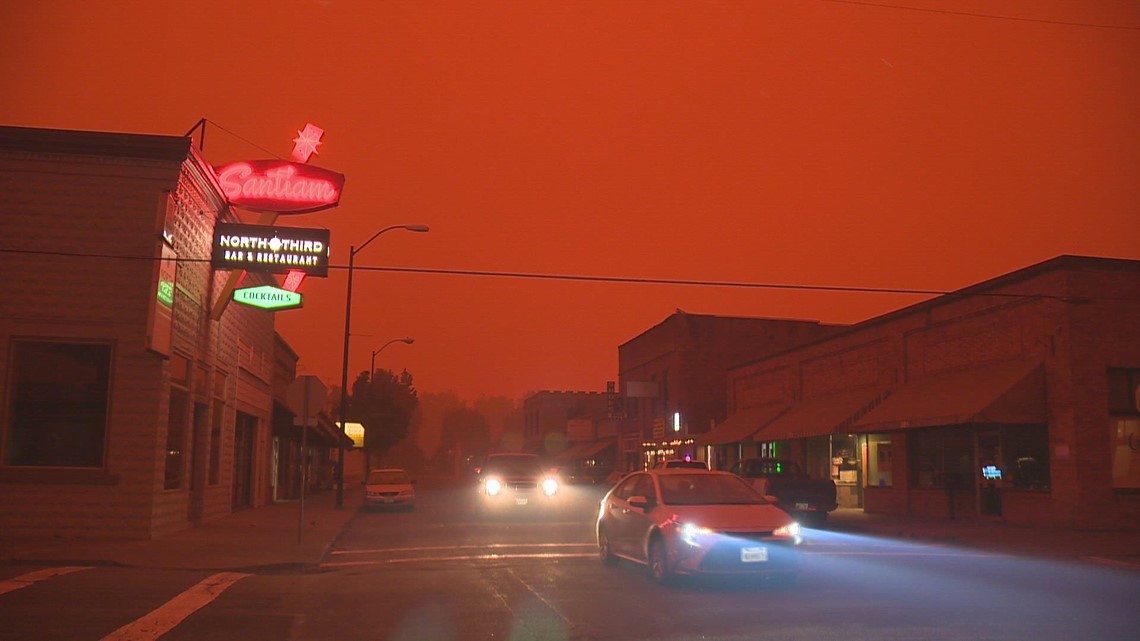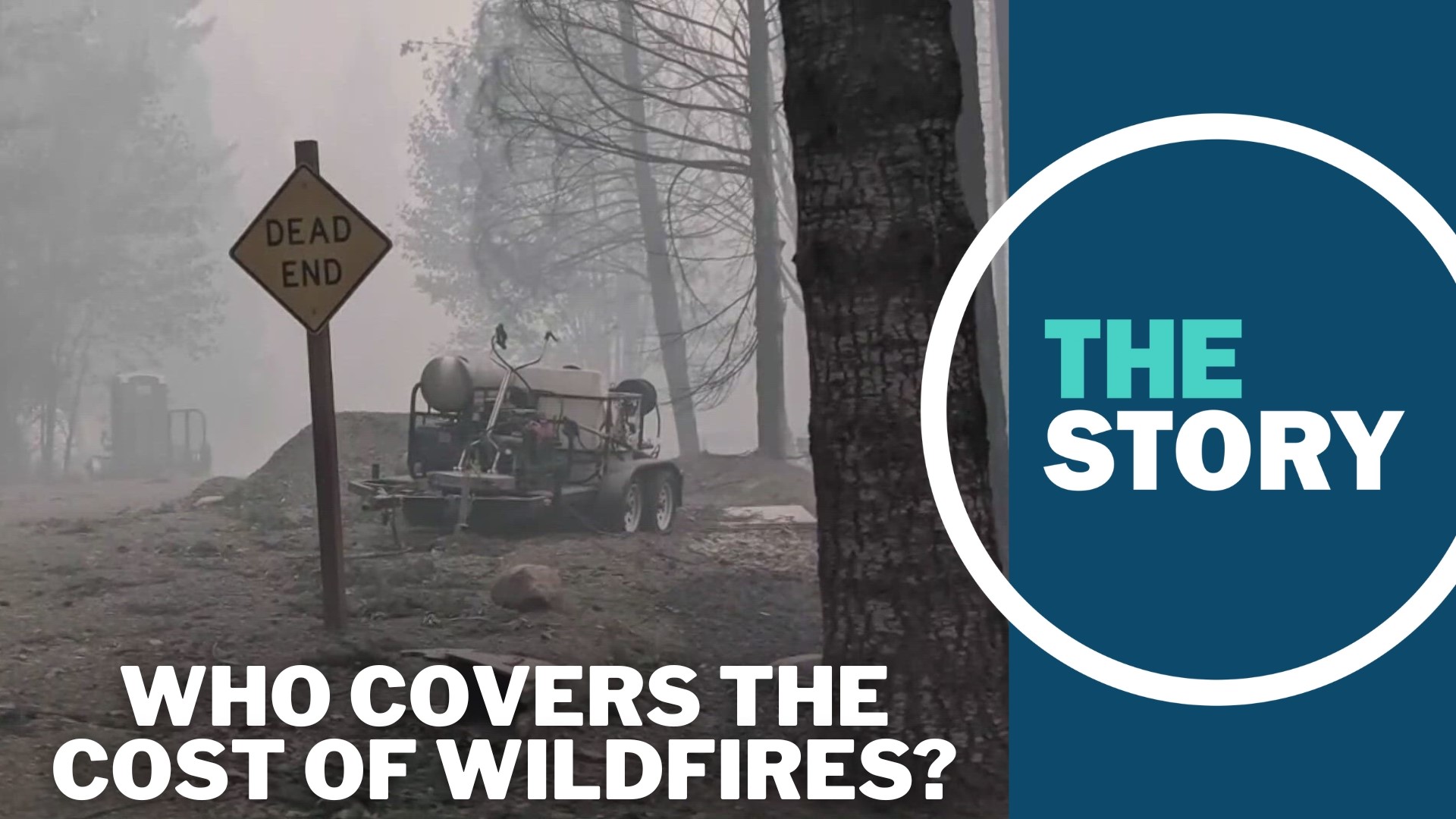PORTLAND, Ore. — Regulators with Oregon's Public Utility Commission will investigate a request from the parent company of electric utility Pacific Power to limit its liability in future wildfire-related lawsuits after the company's loss in a Multnomah County court earlier this year.
OPUC board members announced the initiation of an investigation during a meeting Tuesday morning. The investigation is expected to take nine months.
In June, a jury found PacifiCorp — parent company of Pacific Power — liable for some of the Labor Day 2020 wildfires that destroyed homes and ravaged parts of Oregon.
The jury awarded $90 million to 17 plaintiffs who lost homes and businesses as a result of four wildfires. The company could still owe many millions more through class action elements of the lawsuit.
In the days following the verdict, PacifiCorp submitted a request to PUC asking to defer costs related to the lawsuit until a later date.
This request, if approved, would allow PacifiCorp to potentially request to pass down litigation costs onto customers by raising rates, something the company has not done at this time. The proposal is being contested and is on hold until the total cost of litigation losses is finalized.
In October, PacifiCorp filed another request with regulators seeking to significantly limit the company's liability for future fires. PUC regulators, saying they are tasked with ensuring Oregonians have access to safe, reliable and fairly priced utility services, said they need more time to evaluate this request.
"This application seems to raise a mix of legal and policy or factual issues," said PUC Chair Megan Decker in the meeting Tuesday. "Our job is to decide difficult issues affecting ratepayers in the public interest."
Decker said regulators need to review PacifiCorp's liability in other states, legal precedent on excluding non-economic damages, public feedback, potential effect on utility rates, and various other questions.
A PacifiCorp spokesperson said the company expected regulators to investigate its latest filing.
"Wildfire liability is a critical issue that requires holistic solutions," the company said in a statement. "Pacific Power welcomes the OPUC’s decision to further explore this issue as part of their deliberative process when considering these important issues."
Who should pick up the bill?
PacifiCorp's request to reduce liability was quickly criticized by the Oregon Citizens' Utility Board, which advocates for consumers.
"This is the broadest and most sweeping liability waiver that I've ever seen filed and it's no question that it's coming in the wake of the verdict that was just rendered by the Multnomah County court," said Mike Goetz, an attorney for CUB.
Goetz said consumers should be able to seek damages from power companies if they’re found to be responsible for starting or spreading wildfires. Plus, he said the timing of this particular request shouldn't be ignored.
"We feel that now is not the time for a utility that was just found to be grossly negligent to try to be precluding future customers from potential injury and liability from facts and in cases that are not yet known," Goetz said.
In the filing, PacifiCorp attorneys said a limit on liability is necessary because the growing “increased risk of wildfire” means power companies are now more “exposed” to litigation.
The filing notes that PacifiCorp’s credit rating was downgraded from A to BBB+ after a jury found the company to be negligent and reckless during the 2020 Labor Day wildfires.


A Pacific Power spokesperson told KGW, "We believe a reasonable limit on liability as allowed under Oregon law would be a net benefit to Oregon customers, as it would shield them from some of the costs associated with wildfire litigation."
However, there is no guarantee that Oregon customers would ever be hit with the costs of wildfire litigation. As a regulated utility company in Oregon, PacifiCorp must get approval from PUC for any rate changes — explaining exactly how and why rates are going up. PUC has not approved any rate changes connected to recent litigation losses.
At this point, Pacific Power hasn’t requested to pass on litigation costs to consumers, even if the company has left the door open to make that request via the June filing.
"We're fighting that proceeding and we don't think that there's precedent for those types of costs to be included in rates," Goetz said. "And we're optimistic that the Commission will deny cost recovery when the company comes in and requests it."
Through its filings, PacifiCorp argues that power companies in the West are now more at risk of getting sued and being found responsible for wildfire damage. Climate change is a significant factor and the Multnomah County jury’s verdict may have set a legal precedent, too.
PUC's investigation into PacifiCorp's latest filing may likely answer some of the large outstanding questions: Will regulators allow power companies to significantly reduce their liability in the future? Is such an ask even legal? And if Pacific Power requests to raise customer rates to cover its losses – will regulators let that happen?
"I have faith in the Oregon Public Utility Commission's ability to scrutinize these types of filings and to uphold the public interest," Goetz said.

